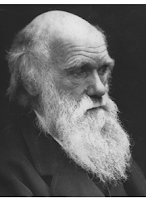Sociology has a long past but only a short history. Sociology which is known as the science of society, is one of the youngest as well as one of the oldest of social sciences. It is one of the youngest sciences because only recently jt came to be established as a distinctint branch of knowledge with its own distinct set of concepts and its own methods of inquiry.
Sociology is also one of the oldest of social sciences. Science the dawn of civilisation, society has been a subject for speculation and inquiry along with other phenomena which have agitated the restless and inquisitive mind of man. Even centuries ago men were thinking about society and how it should be organised, and held views on man and his destiny, the rise and fall of peoples and civilisations. Though they were thinking in sociological terms they were called philosophers, historians, thinkers, law-givers or seers. Thus, "Broadly it may be said that sociology has had a fourfold origin: in political philosophy, the philosophy, the philosophy of history, biological theories of evolutionism and the movements for social and political reforms...".
There was social thought during the ancient age: Though sociology came to be established as a separate discipline in the 19th century due to the efforts of the French Philosopher Auguste Comte, it is wrong to suppose that there exited no social thought before him. For thousands of years men have reflected upon societies in which they lived. In the writings of philosophers, thinkers and law-givers of various countries of various epochs we find ideas that are sociological. For instance , in the writings of Plato, Aristotle, Manu, Confucies , Cicero and others we find major attemps to deal methodically with the nature of society, law, religion, philosphy etc. Plato's Republic, Aristotle's Politics, Smriti of Manu, Confucius' Analects, Cicero's On Justice are some of the anciant sources of social thought.
During the middle ages and early modern times the teachings of the church dominated the human mind and hence most part of human thinking remained as metaphysical speculation far away from the scientific inquiry. Intellectuals became more active science the 16th century onwards. Their quest for an understanding human society, its nature, socio-political system and its problems now received new impetus. The literary works of some prominent intellectuals of this period clearly reveals this urge to understand and interest man's socio-political system.
Machiavelli's "The Prince", Thomas Hobbes "Leviathan", Rosseau's "Social Contract", Montesquieu's "The Spirit of Laws", Adam Smith's "Wealth of Nation's", Condorcet's "Historical Sketch of the Progress of the Human mind" serve as examples of such literary works. Thinkers like Sir Thomas More in his "Utopia", Thomasso Campenella in his "City of Sun", Sir Francis Bacon in his "New Atlantis", James Harrington in his "Common Wealth of Oceana", H.G. Wells in his "A Modern Utopia" - had made attempts to project a picture of an ideal society free from all shortcomings.
However, it was only in the 19th century that systemic attempts were made by Auguste Comte, Spencer, Durkheim, Weber and others to study society and to establish a science of society called "
sociology".




